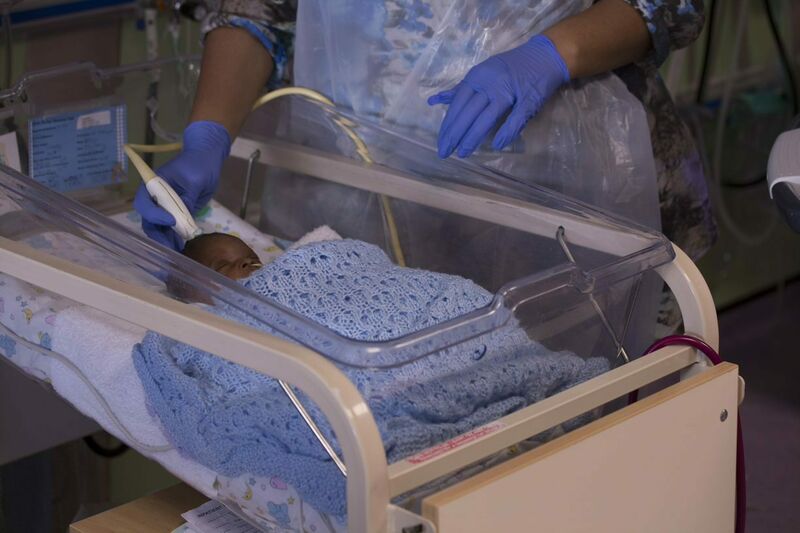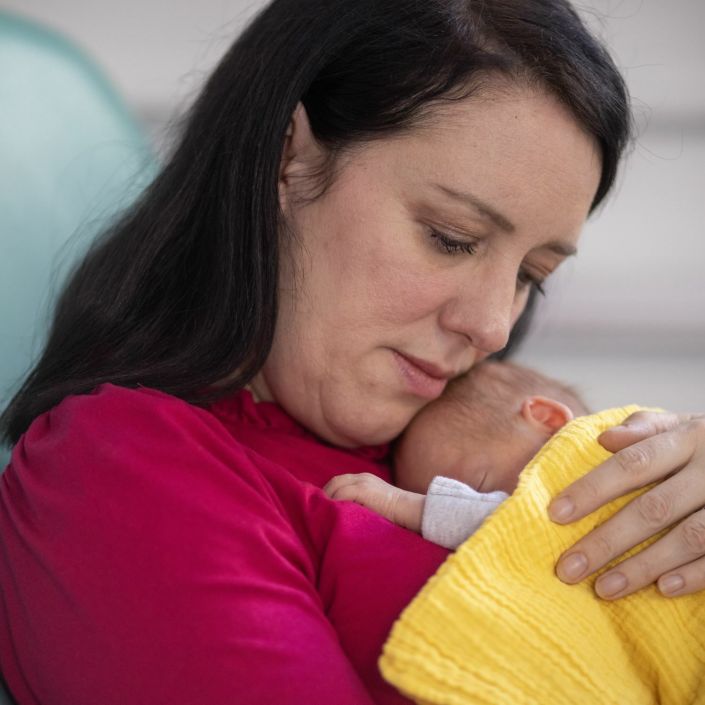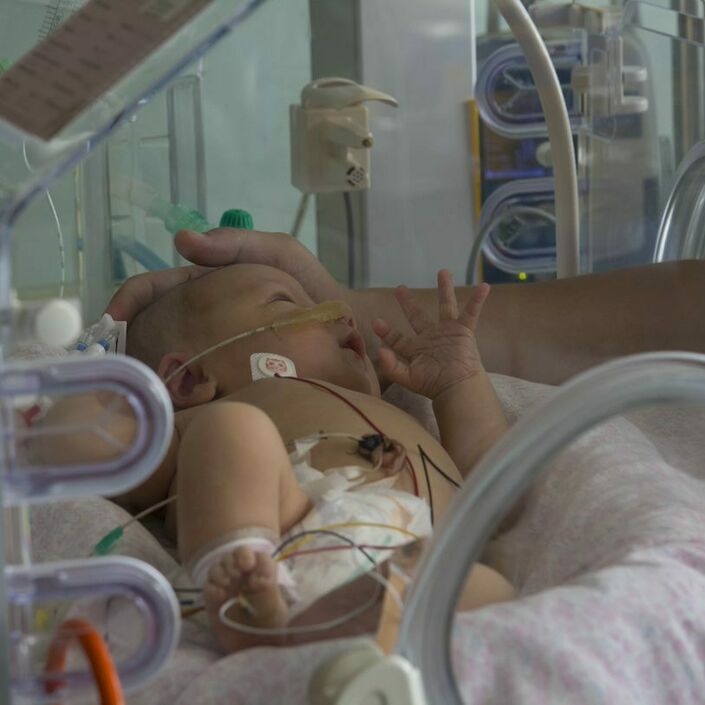In premature babies, the brain and its blood vessels are still developing. The brain has spaces within it, called ventricles, which are filled with fluid. The new blood vessels near these are very fragile. IVH is when blood from these fragile vessels leaks out into the ventricles (spaces). When severe, the bleeding may damage the area of the brain surrounding the ventricles.
Severe bleeds are more likely to cause long-term problems for your baby. The earlier your baby is born, the higher the risk of IVH happening. Most babies who get IVH are born before 32 weeks.
IVH usually happens in the first few days after birth. It can also happen before or during birth. IVH is much less likely to happen after the first week of life, even if your baby was born prematurely, but it can still happen if your baby becomes unwell again.
What are the causes of IVH?
IVH happens when fragile blood vessels tear because of changes in blood flow through your baby’s brain after birth.
Being born at less than 32 weeks’ gestation increases the risk of IVH, particularly if they have other problems including:
If an IVH happens, this will most likely be diagnosed on the neonatal unit.
In many cases, babies with IVH show no signs that it has happened. It may be found when a doctor does a routine ultrasound scan of your baby’s head. Babies who are born very prematurely have a head ultrasound scan within the first few days to look for bleeding like this.
If your baby does have signs of IVH, these may include:
- being floppy or less active than expected
- being less alert
- having unusual movements or seizures
- swelling of the fontanelles (the ‘soft spots’ on your baby’s head)
- breathing less regularly
When it is diagnosed, IVH is graded one to four, depending on how severe the bleeding is. Grade one is the least serious and grade four is the most serious. Babies who show signs are more likely to have more serious bleeding.
What tests might my baby have?
If your baby is found to have IVH, a doctor may do repeat head scans to keep an eye on your baby’s progress.
If your baby had an IVH, they may have a further ultrasound scan or an MRI scan of their head, at around the time of their original due date or their discharge from hospital. This helps doctors know if there has been any lasting damage to your baby’s brain from the bleeding.
There are no specific treatments yet for IVH once it has happened. The blood from the bleeding gradually goes away over several weeks, like a bruise.
The doctors and nurses will continue to give your baby all the care they need on the neonatal unit and the staff there will monitor your baby’s progress to check if the bleeding has caused any problems.
Having skin-to-skin contact and talking to your baby can help reduce harm from an IVH.
We have information about looking after your baby on the neonatal unit, as well as other ways of being involved in care.
An IVH can cause greater risk of problems with development. Less serious bleeding (grades one and two) don’t usually cause serious or long-term problems for your baby. Grades three and four are more serious, with a greater risk of long-lasting effects. Sadly, some babies with severe bleeding will die.
Some babies with IVH can get a build-up of the fluid around the brain during the first few weeks. This can put pressure on their brain and make their head become bigger. This is called hydrocephalus. As well as having head scans, your baby’s head will be measured regularly to look for this. Sometimes an operation is needed to drain the fluid or place a shunt (a type of drain) to help clear it.
An IVH can cause long-term damage to your baby’s brain. Exactly how this might affect your baby will depend on where the damage is.
Some babies with IVH will develop cerebral palsy, which is a condition that affects movement, posture and co-ordination. Some will have learning, speech and behavioural difficulties in early childhood. Some babies will go on to develop epilepsy, which is a condition that causes seizures. These long-term effects can happen with any grade of IVH, but are much more likely after a more serious bleed.
Your baby may have follow up appointments with a specialist nurse or doctor to monitor their brain development for the first two years.
If you have any questions or concerns about any effects of having an IVH, speak to your baby’s healthcare team. You can ask as many times as you like. They are there to help and answer any questions you have.
Knowing that your baby could have long-term problems as a result of their IVH can be frightening and overwhelming, but there is support available. At the bottom of this page we have listed some organisations and sources of support that can help.



